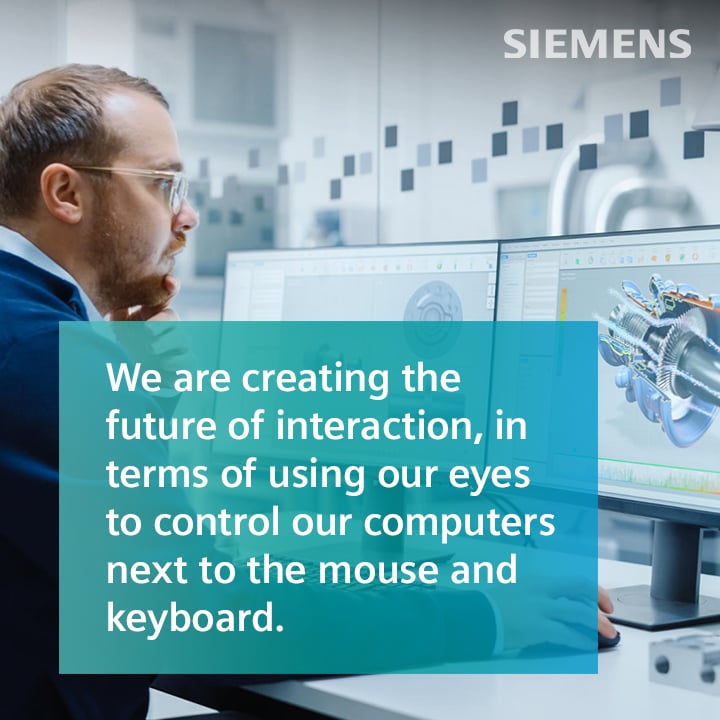Too little exercise, too much VDU work and stress are driving a steadily growing number of office workers into clinics. According to the results of a representative study conducted by the Bielefeld Emnid Institute on behalf of Berlin-Kölnische Health Insurance, one in three office workers in Germany now suffers from back pain, and one in five complains of problems with their eyes.
Wrong chair and little movement, the back pain is not far. Office workers can tell you a thing or two about it.
VDU work makes more and more people ill
An average office worker spends around 80,000 hours of his or her working life mainly sitting at a desk. Hunched over the work surface with high concentration, in close contact with the computer, and often under time pressure - factors that place too much strain on the spine, back, and neck muscles. This condition often leads to physical problems.
"Contrary to the popular belief, office jobs are by no means easy work," emphasizes Bettina Erb from the health management department of Berlin-Kölnische Health Insurance, who conducted the representative survey. "On the contrary: modern office work usually involves one-sided strains on the body, and that - additionally combined with stress - can lead to considerable damage to health."
A good office chair is essential
Most importantly: An office chair should be adjustable in height and tilt. It should be equipped with an adjustable backrest to allow perfect relaxed sitting. Armrests, as well as adjustable lumbar support, can be helpful. In addition, the office chair should be rotatable and equipped with easy-running casters. According to physiotherapists, retrofitting older chairs with a lumbar cushion should be taken with caution. It is better to purchase a new chair. Experience shows that a good office chair leads to less physical discomfort and thus to fewer sick leaves. The purchase is therefore always worthwhile.
Work desks that can be adjusted in height are ideal. This allows them to be adjusted to the height of the employees. The forearms must be able to rest relaxedly on the tabletop without having to bend over or stretch.
Important: Load change
Regular load changes are important. Wherever possible, people should stand up more often to work (for example, when making phone calls) or alternate between a desk and a standing desk. You should also change your sitting posture more frequently. Regularly alternating between an office chair and ergonomically designed stools is ideal.
The breaks should include relaxation exercises. Sitting still for hours not only damages the back but also slacks the abdominal muscles. It may result in digestive problems and the development of varicose veins.
Over 20 million professionals work on a computer screen every day. Constantly changing your gaze between keyboard, monitor, and text, different brightness levels and contrasts mean hard work for your eyes. In the meantime, one in five office workers now has problems with their eyes. Overstrained eyes become noticeable through burning, itching, a feeling of pressure, redness, blurred vision, or headaches.
Legal stipulations are seldom observed
A VDU work ordinance passed by the legislature at the end of 1996 prescribes regular ophthalmological examinations for employees at VDU workplaces. Only a small percentage of those affected are aware of their legal entitlement to an examination of their eyes and vision free of charge and, if necessary, a supply of special vision aids. A VDU workplace should be designed to be as easy on the eyes as possible. Reflections and reflections on the screen should be avoided at all costs. The installation of blinds is recommended to keep out direct sunlight.
In addition to adequate, shadow-free lighting, occupational physicians recommend the use of lamps with asymmetrical light. The monitor should be positioned about an arm's length away. The top line of the screen must be slightly below eye level. A flicker-free screen is important, which, among other things, requires a good graphics card for the computer. An alternative can be LCD screens, which have no flickering due to the system.
Blink regularly
The best way to sit at the computer is as if you wanted to read a newspaper: your gaze directed slightly downwards, your head and neck upright and your chin to your chest. Regular breaks are important. Several small breaks are more valuable than one big one.
Concentrated screen work leads to a reduced eyelid blink frequency which can result in dry eyes. Contact lens wearers suffer particularly from this. Experts, therefore, recommend blinking from time to time to compensate.




